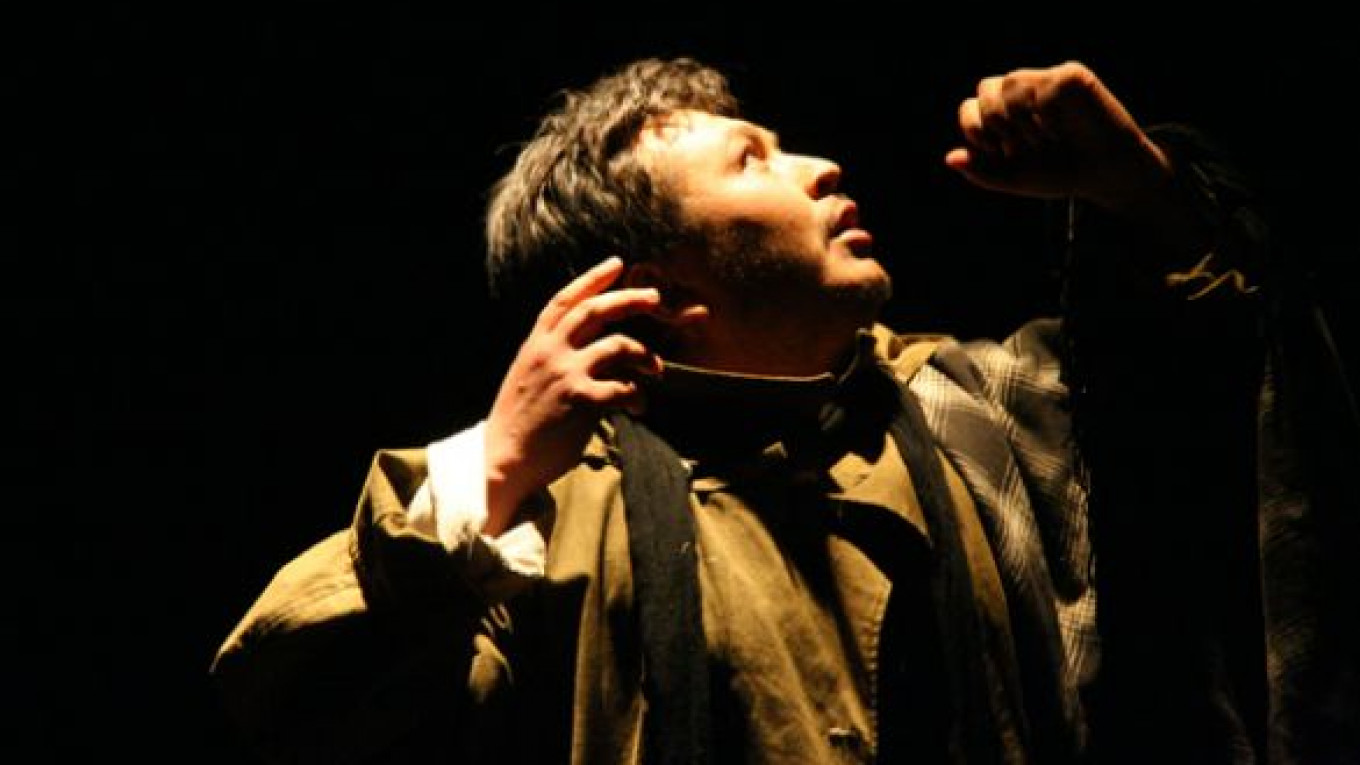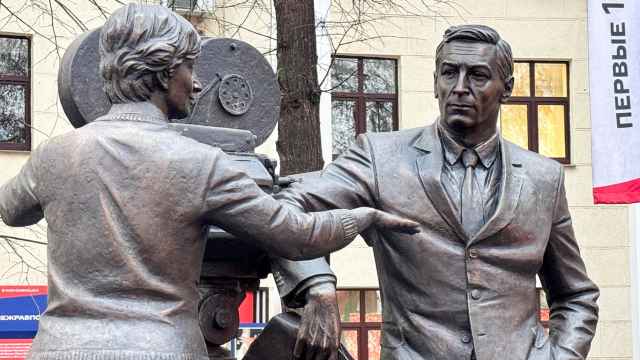No one needs to remind me how much time has passed since The Moscow Times emerged as a daily 20 years ago. Entire lifetimes, whole histories have passed before my eyes.
Theater changes with everything else – politics, economics and sociological developments – sometimes falling behind the curve, sometimes lurching ahead. But that's in theory. What about the reality of it?
I looked back at eight reviews and features I wrote between Sept. 11 and Oct. 28, 1992, and even I was astonished. They focused on two theaters that have since ceased to exist, four performers who are now dead, an actor who was incapacitated in an automobile accident, and a writer who abandoned drama and devoted his life to religion.
Of these eight articles just one focused on something that fully remains with us today – the Chekhov International Theater Festival.
That is something of a miracle, and a symbolic one I would say. Plagued as that fledgling endeavor was by financial disaster and political unrest, any sensible pundit would have marked it for failure.
One sponsor filed for bankruptcy days after the festival began. Three theaters bailed at the last minute, one from Lithuania and two from Georgia because of a boycott called by the Georgian government to protest Russia's support for Abkhazian separatists.
Three more theaters barely made it.
The Sundukyan Drama Theater of Armenia was held three days at the Yerevan airport because of local disturbances before their plane could fly. The Czechoslovakian government, in its last months of existence, could not provide the promised travel funding for the Gate Theater of Prague. That trip was saved when two Czech companies made up the shortfall.
Most dramatic was the late arrival of the Akhorun Experimental Theater whose flight from Dushanbe was cancelled due to what was laconically described as a "change in governments" in Tajikistan. The new authorities finally put the company on a military transport and they performed in Moscow after a five-day delay.
It is no exaggeration to say that the Chekhov International Theater Festival was one of the great initiatives of its era. There was every reason it should have failed, every reason why it should not have been organized in the first place. War, instability and poverty were daily concerns. And at this very moment Valery Shadrin had the mad idea of initiating a theater festival, one that would be international in scope and would seek to do what? To unite countries that were then in the process of suffering hard, painful and sometimes violent divorces?
Talk about a doomed enterprise.
But, no. The more-or-less biannual Chekhov Festival flourished and grew through the decades, emerging as a heartening story of committed people sticking to a dream, beating the odds and outwitting history. The next incarnation of the festival, running from May to July 2013, will be the eleventh.
That story, success against all odds, reflects something I have seen repeated often over the last 20 years. When I began reporting on theater in these pages it was considered common knowledge that there were no new directors of interest, no new writers, no new ideas whatsoever. There were almost no organizations in place to discover new artists or present new work in any way.
Today the list of such enterprises would be as long as Father Time's beard. Following the success of the Chekhov Festival, we have seen the founding and flourishing of a plethora of festivals bearing such names as Golden Mask, Stanislavsky Season, Territory, NET, Big Change, TSEKH, Lyubimovka and Cast of Characters. And that is just in Moscow.
Today Teatr.doc, Playwright and Director Center, Praktika, SounDrama, Joseph Beuys Theater, Fabrika, Platforma project and School of Theater Leaders are just a few of the very different organizations seeking to push the envelope in contemporary theater arts.
One of the hot topics of conversation these days is what will happen to Russia's famed repertory system. The older you are the more you fear it will be destroyed by budgetary problems and the increasing formation of groups that are smaller, more mobile and cheaper to run. The younger you are the more you yearn to see the unwieldy old system of large, state subsidized troupes become a historical footnote.
On Oct. 7, 1992, I gave a lukewarm review to a play called "Far Away in Other Lands" at the Gogol Theater. The next time I visit that same venue in this far away present I will enter the reborn, renamed Gogol Center run by celebrity director Kirill Serebrennikov. There's no telling what we'll think about that and other changes that will take place between now and 2032. But I'll wager my Moscow Times pension plan that the road getting there will be as exciting and unpredictable as was the one that wended its way from 1992 to 2012.
Related articles:
A Message from The Moscow Times:
Dear readers,
We are facing unprecedented challenges. Russia's Prosecutor General's Office has designated The Moscow Times as an "undesirable" organization, criminalizing our work and putting our staff at risk of prosecution. This follows our earlier unjust labeling as a "foreign agent."
These actions are direct attempts to silence independent journalism in Russia. The authorities claim our work "discredits the decisions of the Russian leadership." We see things differently: we strive to provide accurate, unbiased reporting on Russia.
We, the journalists of The Moscow Times, refuse to be silenced. But to continue our work, we need your help.
Your support, no matter how small, makes a world of difference. If you can, please support us monthly starting from just $2. It's quick to set up, and every contribution makes a significant impact.
By supporting The Moscow Times, you're defending open, independent journalism in the face of repression. Thank you for standing with us.
Remind me later.







